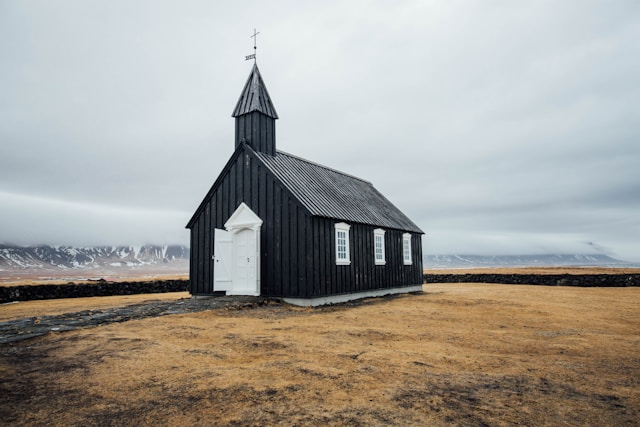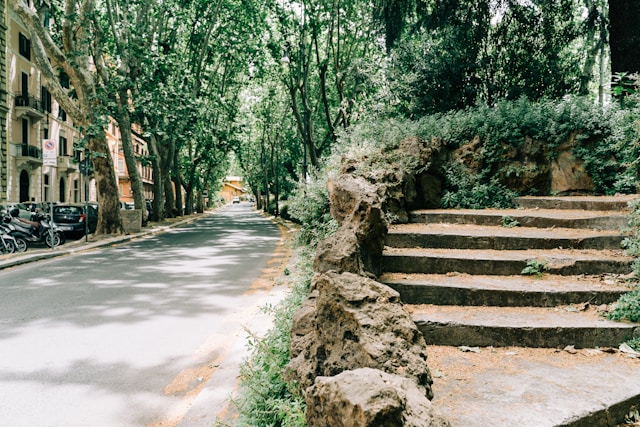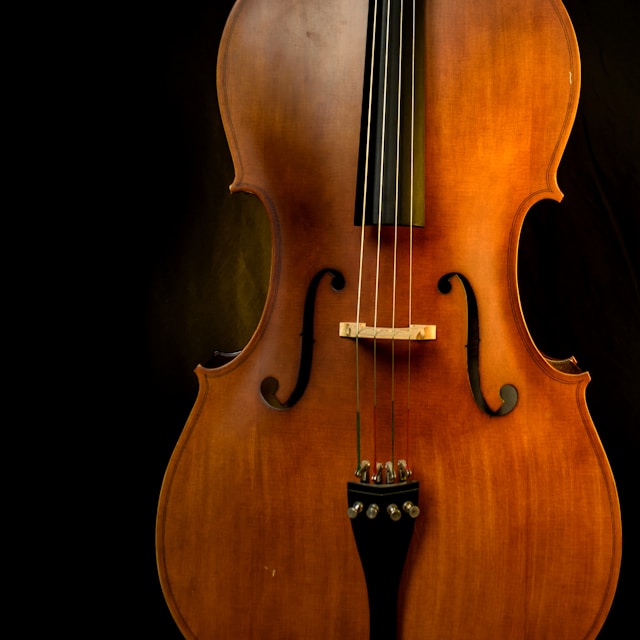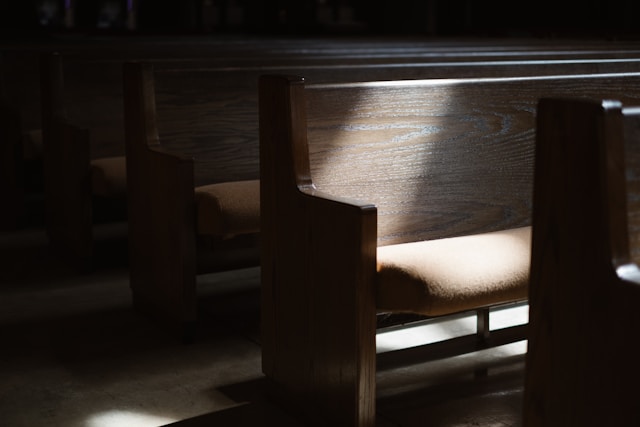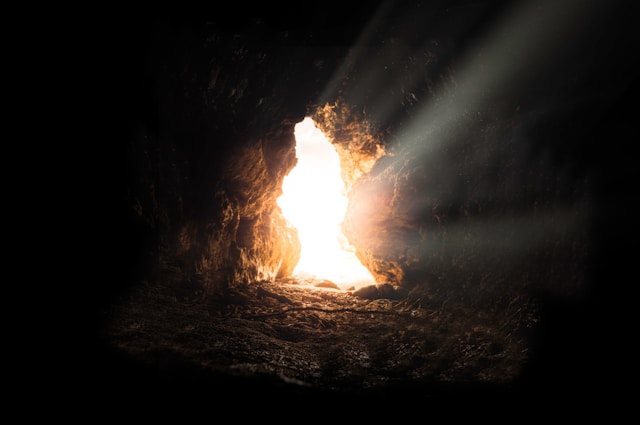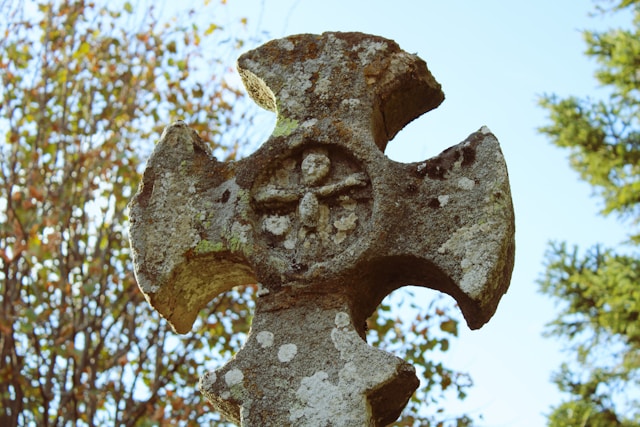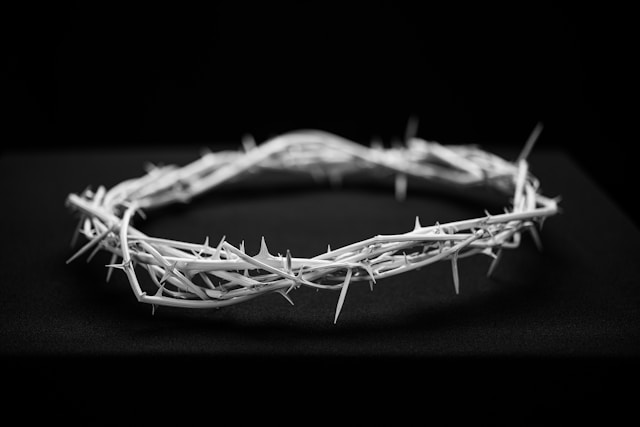Small wooden houses ringed the Bethany town square. A man sat by the water well in the dusty square. Lucius Varus walked to the house the man said belonged to Lazarus.
Varus stood over an old man sitting in a chair on the small wooden porch. “Are you Lazarus?”, he asked.
He nodded, and beckoned Varus to sit on the chair next to him. Varus could hear people moving around inside the house. “I live here with my sisters Mary and Martha.”, Lazarus said.
The skin of the old man’s thin face was like old leather. But his voice was strong, and his eyes alert. He said, “Who are you, Roman soldier, what can I do for you?”
“I am Lucius Varus, Pontius Pilate’s chief of staff.”
Lazarus said, “Your uniform is bloody. We have heard about violence today in Jerusalem.”
Varus said, “Our Antonia garrison was attacked by Galilean Zealots. We overcame them, but Roman soldiers were slain. Just before that, the preacher Jesus of Nazareth caused a riot at the Temple courtyard next door. I think the two events could be related. We heard you talked to the Zealot leader, and also to Jesus today. I want to know what you know.”
“Yes, I spoke with Jesus this morning. And with others. I thought I might be questioned.”
“You are the preacher’s friend”
“We have known Jesus and his family for a long time. Jesus and his men have been staying in Bethany this week.”
“Why does he come to you?”
“When Jesus was starting his mission, his family thought he had gone crazy. But my sisters and I never doubted his closeness to our God, and his greatness as a teacher. He has not forgotten that.”
“Did Jesus tell you what he planned to do today at the Temple?”
“He said he planned to confront the Sadducees, and that this would cause him great trouble.”
“Did he say why he planned to do this?”
“Jesus has been in torment since he arrived here. He says his preaching mission requires a confrontation at its end. He says Temple leaders will give him up to the Romans, and that he will then be crucified. What did he do today?”
“He overturned money changer tables, and released sacrificial animals. Many in the crowd did the same, and there was much looting. Temple police had to step in. I think he might have wanted my soldiers to help the Temple police control the riot, and thus be distracted from the Zealots.”
Lazarus nodded. “I am glad the people rioted. The priests charge a month’s pay for a dove! The Sadducees says they need the money to run the Temple, but we all see how they live.”
Varus said, “Did Jesus say anything about an attack on the Antonia?”
“He did not.”
“Tell me about your other visitors this morning.”
“A large group of armed Galileans came by. Their leader came into the house to speak to me. He called himself ‘Barabbas’.”
“What did he say?”
“He said they all expected to die in a battle with the Romans. A big man. He was weeping. He asked for my blessing.”
Varus said, “This man Barabbas survived the battle, and two of his men. Pilate and I scourged Barabbas. He said he did not tell you he planned to attack the Antonia.”
“He only said there would be a battle.”
“Did you know Barabbas before this?”
“Galilee is not a big place, so I have heard of him. But I did not know him. He said he had done many bad things in his life, but that striking at the Romans would be one good thing at its end. The Zealots kill you Romans, and those who collaborate with you.”
“I know about the Zealots, Lazarus. But, why did he come to you to say that?”
“Many people have come to see me recently, Roman soldier. Jesus of Nazareth raised me from the dead. People want to know if the story is true, and they ask for my blessing.”
“Did he say anything about Jesus helping with his battle?”
Lazarus turned to look directly at Varus. “Jesus help? No, he did not.”
Varus said, “Did Jesus and Barabbas talk with each other this morning?”
“I do not think so. Jesus and his men were leaving when I saw Barabbas and his men in the square.”
“Will you see Jesus again?”
“I doubt it. He’ll figure you would come here.”
Varus said, “Listen to me, Lazarus. We were attacked today. A full report must be sent to Rome. Tiberius will be angered by the loss of Roman life. We need to tell him that we were ready for the attack, defeated it, and have identified and crucified all those involved. That would be Barabas, and his two friends, first thing Friday morning, after their trial. But I need to know if your preacher had anything to do with the attack. You need to tell Jesus I need to speak with him about that.”
“If I see him, I will, but I doubt he will comply.”
Lazarus looked sideways at Varus. “We hear that High Priest Joseph Caiaphas brags he has the Emperor’s ear. He might report that Jesus tried to help the Zealots today.”
Varus thought ‘This man knows more than I thought. If Tiberius thinks we failed today, we could be recalled to Rome. Men have been told to fall on their sword for less than this’. He said, “That’s right, old man. His complaints to Tiberius drive Pilate crazy. That is why I need to get the truth of it from the preacher, before Caiaphas can make trouble”.
Varus looked at Lazarus, and the old man stared back. ‘You have to give information to get information’, Varus thought. He said, “I know some things about Jesus of Nazareth, Lazarus. From one of his men.”
Lazarus said, “I can guess who. Jesus told me one of his disciples is an informant, and he said that a Roman soldier has been watching him.”
Varus said, “We are here to keep order and collect taxes. Caiaphas told us Jesus would be disorderly, so we have kept an eye on him. So far, he has caused us no problems.”
Lazarus smiled. “Jesus preaches against the hypocrisy of our upper class, and the people do listen. The High Priest office is not supposed to be hereditary, but Caiaphas’s family holds it. Debts are supposed to be forgiven periodically, but the Sanhedrin’s money lenders prevent that. Caiaphas fears him.”
“I saw Jesus preach to a large crowd, at Capernaum.”
Lazarus seemed amused. He said, “Really? What did you think?”
“Even a Roman can tell he is a great teacher. I remember two things. He told one crippled old man to stand up, throw away his palette, and walk away. The old man did! The crowd went wild. I could not believe the preacher would bet on something like that, and so I was sure it was staged. But later my informant told me no one around Jesus knew the man beforehand.”
Lazarus said, “I heard about that one. Of course, it was real. There have been dozens of cures and exorcisms, never a failure. Jesus uses miracles to get people to believe what he preaches. What was the second thing?”
“There was much back and forth with the people. One well-dressed man challenged some things that Jesus had done. Jesus called him ‘a fat Pharisee’, ‘a viper in the weeds’, ‘a hypocrite’, and other insults. The denunciation was total. The anger, coming from a holy man, surprised me.”
Lazarus smiled. “You think Jesus is just a nice holy man? Think again, Roman soldier.”
‘Angry enough to help attack us?’, Varus thought. He said, “You say Jesus expects to die in Jerusalem. But he is a talented man. Why doesn’t he just go back home? He would live to preach another day.”
Lazarus said, “Many people have questioned Jesus in that way. Why spend your life traipsing around the countryside? Why spend time training ignorant disciples? Why not marry the beautiful Mary of Magdala and raise a family?”. Lazarus shook his head. He said, “We have a saying: ‘Jerusalem is where prophets go to die’. This is the moment his message gets heard by all. You will see him preaching at the Temple each day this week.”
“Then I will arrest him in the courtyard.”
“You would start another riot. Why don’t you have your informant arrange a private meeting?”
Varus said, “You might be right. I can contact the informant, or Caiaphas can.”
The two men sat in silence, taking in the sun’s last rays. Varus could hear the old man’s breathing. He turned in his seat to look at his face.
“Lazarus”, he said. The old man opened his eyes. “How old are you?”
He smiled. “When I died, I was 76 years old. Now I am two months old.”
Varus laughed. Lazarus said, “You must be tired. I have been a poor host. Would you like some water?”
“It has been a long day. A drink would be good”, Varus said.
Lazarus called to his sister. “Martha, bring water”.
An old woman brought out a jug and three mugs. She filled them, then she drank from hers.
Varus drained his. “Thank you”, he said. He said, “Too bad this is not a jug of wine.”
“It might be, if Jesus was here”, Lazarus said. “That was his first miracle, you know.”
“What was?”
“Turning water into wine. Early in his ministry he was at a wedding in Cana. The wedding was large, and the wine ran out early. Jesus was told that by his mother, who was concerned that her nephew the groom would be embarrassed. Jesus told his disciples to fill six stone water pots. Jesus blessed the water, then told his men to take some to the wine steward. The steward went around praising the groom for saving the best wine for last.”
“You saw this happen?”
“Not exactly. I was at the wedding, with my sisters”, Lazarus said. “His disciples told me about it later. They said Jesus did not want publicity, thinking that his first known miracle should be about something more high-minded. The story has become a great parable among his faithful: Great news comes to us only now, after a thousand years of our experience. His message is the better wine, don’t you see?”
Varus said, “The men who run the Temple are happy with the wine they already serve. Right?”
Lazarus smiled. “Exactly, Varus. The priests also do not like it when he says ‘You don’t put new wine into old wine skins’.”
Varus said, “I saw Jesus enter Jerusalem yesterday, riding on a colt. Some in the crowd called him their ‘messiah’ and a ‘king’. There will be no messiah, and you Jews no longer have a king, Lazarus. Pilate said I should have arrested him on the spot for sedition. But the preacher did not call himself a messiah or a king.”
Lazarus frowned. He said, “Jesus talked to me about his entrance beforehand. He said a horse would signify defiance, but the colt would signify a peaceful attitude, as our prophet Zechariah had foretold long ago. But I reminded him the well-known prophecy was also about the coming of a messiah, and a call for purity in the Temple. I told him Caiaphas would not cooperate, and would tell Pilate Jesus wants to be king. I could not talk him out if it.”
The sun had gone down. They sat in the darkness. Varus said, “Lazarus, I must know. When you were dead, did you know you were dead?”
“I had been very sick and there was much pain. Then there was nothing, until I heard Jesus weeping. He called me to come out. Many people were there when I walked out of my tomb. My sisters took off my funeral wraps and some men helped me to my house. I have felt good ever since.”
Varus looked at Lazarus. He said, “One more thing, Lazarus. You said Jesus thinks he will die at our hands in Jerusalem. A few years ago, Caiaphas asked Pilate to crucify a man who had broken one of your religious laws. Pilate refused. He said he would not get into the middle of one of your religious disputes. Pilate told Caiaphas to stone the man himself.”
Lazarus said, “Jesus is very popular. He even has support in the Sanhedrin. Caiaphas won’t stone Jesus to death, even if Pilate tells him he can. He will get Pilate to do his dirty work.”
“And just how will he do that, Lazarus?”, Varus said. “You Jews hate the Romans, and you think Pilate is a cruel man. But we are an honorable people, Lazarus. Even Barabas will get a trial, Friday morning. Pilate will not crucify an innocent man. Jesus will get a trial Friday as well. He only needs to deny involvement, and tell Pilate he does not want to be king of the Jews.”
“Do not be insulted, Varus. I only tell you what Jesus predicted. But I tell you: I am sure there will be a crucifixion. Would you hammer the nails?”
Varus turned to look at Lazarus. He said, “My Centurian. I would supervise. But I tell you we will not crucify an innocent man, Lazarus.”
The tense moment passed. Varus had come to Bethany to find out if Barabbas and Jesus were in league. He now doubted they were. He thought `It’s just another chaotic Jewish festival week. We stay for a few more days, we go back to Caesarea, the report will write itself.’
Varus stood. “Thank you for telling me about the preacher. But I remind you I am here as military. I need to talk to Jesus of Nazareth in the next few days. If the informant cannot arrange a meeting, I will be back, and hold you to account, Lazarus.”
There was no more to say. Varus nodded to Lazarus and Martha, and stepped off the porch. They watched him disappear into the dark.
A voice from behind the thin wooden wall said “Well done, Lazarus. You got him to talk. My arrest has been foretold, and my sacrifice is at hand. I know what to say at my trial.”
“This need not be”, said Lazarus. “We can help you escape to our people in Egypt. The evil of this world is too strong. Caiaphas will drown out your message after you are gone, and nothing will change.”
“Running away would deny my message. Lazarus, have no fear. The cross will embarrass the evil of this world. Then those who have heard will carry on after I am gone.”
Joseph Brady is a retired university teacher who has written textbooks for many years. He is now trying his hand at fiction



